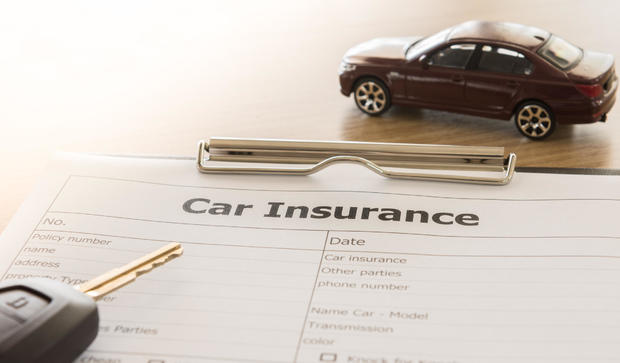The hidden cost of "driving while female"
A major consumer group contends that women pay more in auto insurance just to get behind the wheel, shattering a common urban myth that men face higher premiums.
And sometimes the cost is a lot more. In 38 instances, women with perfect driving records were charged at least $100 more per year than their male counterparts, according to a study by the Consumer Federation of America (CFA), which compared car insurance premiums for men and women in 10 big cities across the U.S.
The study looked at six major insurers: Allstate (ALL), Farmers, GEICO, Liberty Mutual, Progressive (PGR) and State Farm. It found that in six instances, applicants for car insurance faced premiums of at least $500 more solely because they were "driving while female," the study said.
"Insurance companies punish female drivers with perfect records far more often than men," said CFA insurance consultant Douglas Heller. "Regulators should reconsider allowing companies to continue using it at all."
Ironically, twice as many people believe insurers charge men more for auto coverage than women, according to the CFA survey. But that's wrong.
CFA researchers compared 165 pairs of insurance quotes for men and women and found that 40-year-old women were the most likely to be charged more than men, while 60-year-old women were also "penalized more often, facing higher premiums than their male counterparts" in nearly 60 percent of the cases where gender was a factor.
"It is widely believed that male drivers, especially young male drivers, cause more and costlier accidents," said CFA director of insurance Robert Hunter. "State insurance commissioners should insist that auto insurers explain why they usually charge middle-aged and older women higher rates than men."
Even younger women are charged more in certain instances, CFA found. The nation's second-largest car insurer, GEICO, charged female drivers higher premiums 83 percent of the time, with surcharges averaging $176 annually, including average penalties of $143 for young females 20 years old, compared to males of the same age, according to the CFA.
The CFA created a "good driver profile" of both a man and a woman at different ages, who each drove a 2007 Toyota Camry and had no tickets or moving violations. Then it looked for quotes in 10 cities ranging from Seattle to Tampa. "What we found was a shocker," said the CFA's Hunter. "How can GEICO say a woman is a $1,000 higher risk because she moves from Cleveland to Tampa? She's the same person."
Hunter said the computerized rating methodology used by insurers was delivering weird results. "They keep putting more facts into the machine and not watching what comes out," he said. "It's garbage output." Instead, state regulators need to develop their own models for rating people, since almost everyone in the U.S. has to have car insurance.
Insurers disputed the CFA's conclusions, although not necessarily its findings. "Gender and driving record are only two of the numerous variables an auto insurer assesses," said spokesperson Michael Barry of the Insurance Information Institute (III), which represents the auto insurers. "And state insurance regulators insist that these variables be justified."
Vice President David Snyder of the Property Casualty Insurers Association of America, echoed Barry's comments. "In every state, insurance companies are already subject to regulation to ensure that rates consumers pay accurately reflect the likelihood of someone having an accident or filing a claim," Snyder said. "Factors such as driving experience, claims history, age, gender and marital status are widely accepted and approved by state regulators because they are accurate predictors of future losses."
Nearly every study ever done has shown that men are more likely to be involved in accidents than women. Some cite the fact that men are behind the wheel for 60 percent of all miles driven, others point to the types of vehicles men drive and that more often than women they drive while intoxicated. According to dmv.org, 71 percent of all car accident related deaths in a recent year involved males.
Hunter said some women were now driving "more aggressively," but that wouldn't explain the huge disparity in cost of car insurance that this study showed. For example, GEICO charged women 83 percent more, while Progressive charged 60 percent more. In contrast, Allstate, Farmers, and Liberty Mutual charged men more. State Farm had virtually no disparity in ratings so typically did not charge different premiums for women and men, with the exception of younger males.
The insurers' answer to the fact that rates vary by gender is simple: "Shop around for a better deal," III's Barry said.
"The CFA seems to jump to the conclusion that differences in rates among companies should not exist," Snyder said. "To the contrary, this is the mark of a competitive market."
The CFA study focused on obtaining "quotes" for car insurance, which is a long way from purchasing a policy. It's easier to lie to a computer than to seek real coverage, since the applicant then must submit a Social Security number and allow the insurer to look into his or her real driving record, education, job and credit history. The CFA study, which may show a change in the way insurers look at women drivers, is only part of the story.





